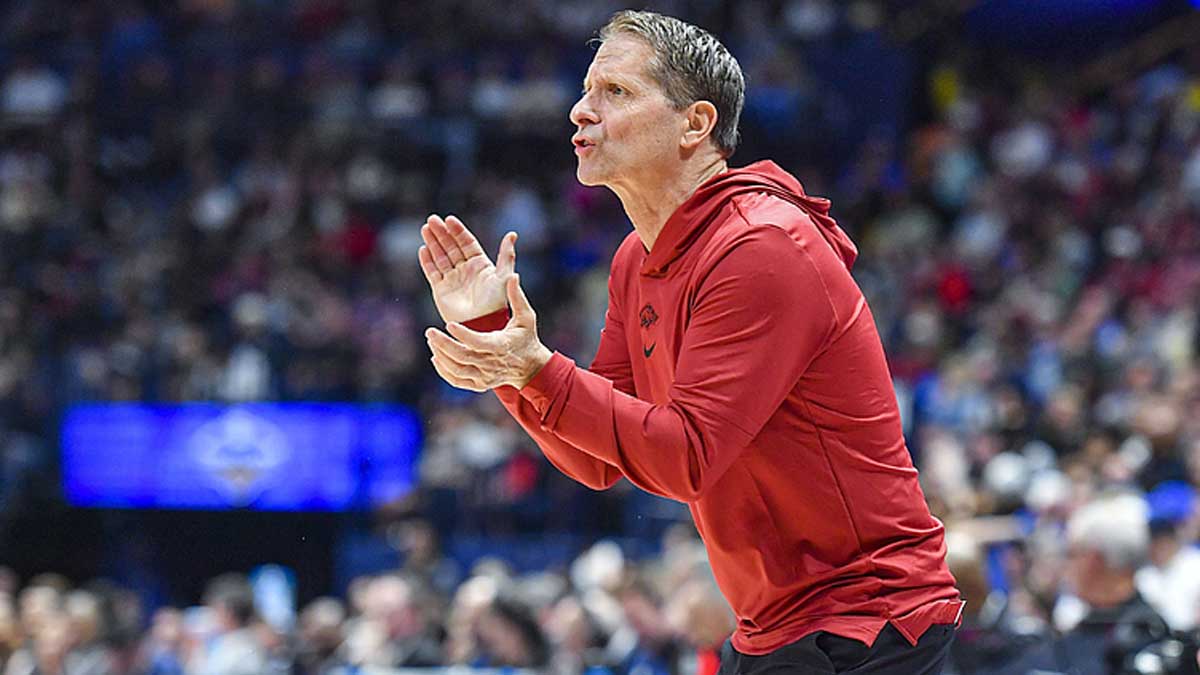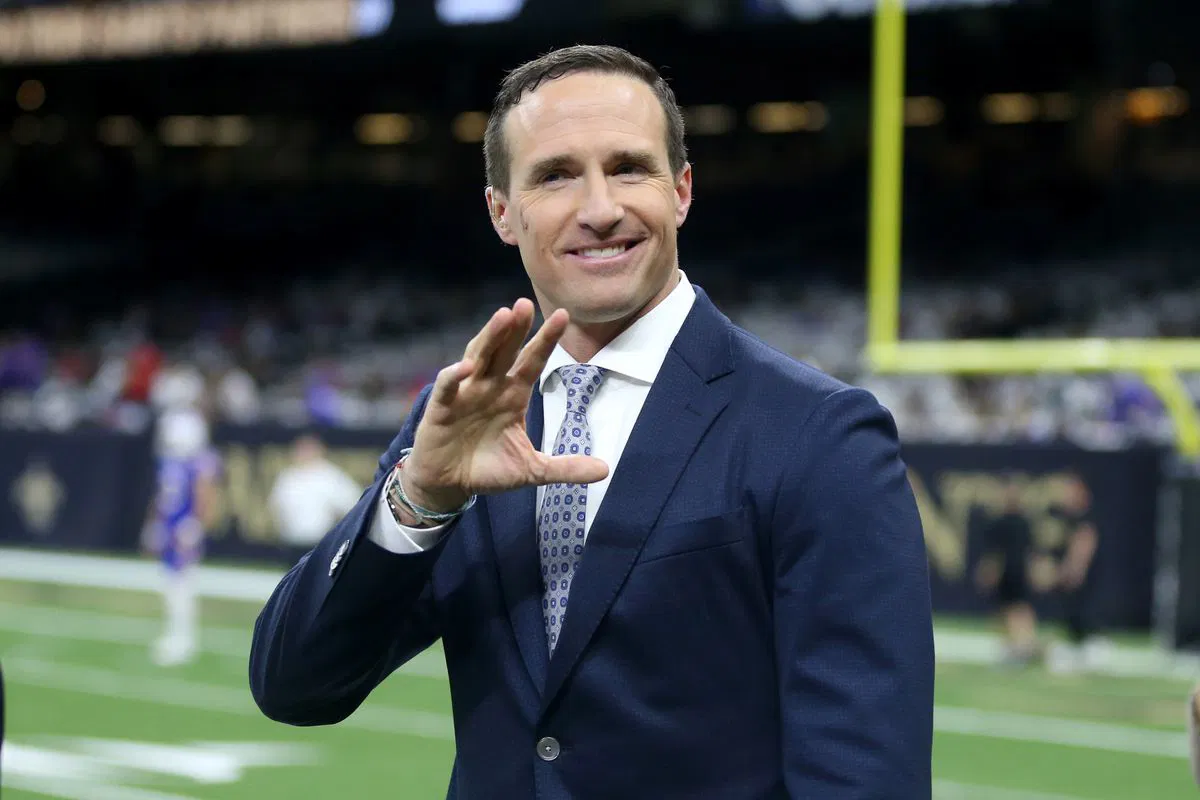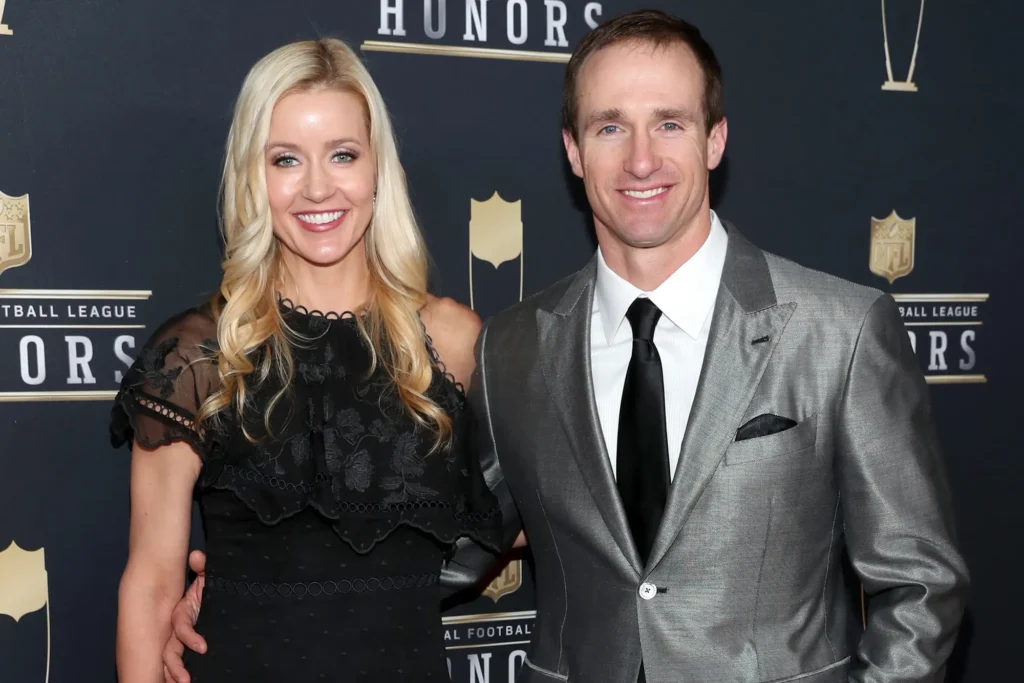Athletes
Eric Musselman Net Worth – Arkansas Basketball Head Coach

Eric Musselman Net Worth
$12 Million
| Name | Eric Musselman |
| Date of Birth | November 19, 1964 |
| Age | 59 years |
| Height | 5 ft 7 inch (170 cm) |
| Profession | American Basketball Coach |
| Nationality | American |
| Religion | Christianity |
| Net Worth | $12 Million |
Eric Musselman is a well-known figure in the realm of coaching basketball at the collegiate and professional levels. He was born on the 19th of November 1964 and has a wealth of coaching expertise with various clubs read more about the eric musselman and eric musselman net worth, career in basketball.
Early Life of Musselman
Musselman, a son of basketball coach Bill Musselman, was born in Ashland, Ohio. His initial encounters with basketball fueled his enthusiasm for the game, resulting in a multi-decade participation.
Early in his coaching profession, Eric was an assistant coach for teams like the Minnesota Timberwolves and the Rapid City Thrillers.
Personal Life
Danyelle Sargent, who also has a notable history in sports broadcasting, is the wife of Eric Musselman. Sargent has been an NFL Network, ESPN, as well as Fox Sports Net sportscaster. The couple’s two kids demonstrate how closely entwined the family is with sports on a personal and professional scale.
Being the son of the late, highly regarded basketball coach Bill Musselman, Musselman has a rich basketball heritage. A recurrent motif in Eric’s life is his father’s influence, which shaped his teaching style and intense appreciation for the game.
What is the Age, Height, & Weight of Eric Musselman
As of 2024, Eric Musselman’s Age is 59. He is reported to have a height of 5 feet 7 inches (1.70 cm) and a weight of approximately 95 kg (209 lbs). However, please note that an individual’s weight can fluctuate periodically due to various factors, including lifestyle, fitness, and diet.
Career as a Basketball Player
Though not as well-known as his coaching occupation, Eric Musselman was a basketball player before starting an impressive coaching career. Let’s examine the limited facets of his playing career that are currently known.
Musselman had a significant role on the basketball team at Brecksville-Broadview Heights High School in Ohio. His on-court performance greatly impacted his high school career.
Musselman played basketball as a point guard at the University of San Diego, a Division I institution, from 1983 to 1987 after graduating high school.
Given his in-depth knowledge of the game, it follows that his time spent competing as a player greatly impacted his coaching style, which combined his knowledge of the game’s more general components with his on-court experiences.
Why Eric Musselman Chose Not Play More?
Eric Musselman, however, chose not to play basketball professionally. Upon completing his academic education, he started to pursue his dream of becoming a coach for basketball, like his dad, Bill Musselman.
Transition to Coaching Career
Eric Musselman showed a great commitment to the art and science of basketball coaching during his relatively quick transition from his playing days at the University of San Diego to his coaching career. His father, Bill Musselman, was a successful coach and probably impacted his professional trajectory. This is a summary of the steps involved in this transition:
Early Coaching Roles
After graduating from college, Eric Musselman became head coach and general manager of the Rapid City Thrillers in the United States Basketball League (USBL). Early on, he showed his coaching ability, and the squad won two titles during his time there.
NBA Assistant Coach
Musselman moved to the NBA in the late ’80s and early ’90s, first as an assistant coach with the Minnesota Timberwolves, the team his father led as head coach. He also worked as an assistant coach for the Atlanta Hawks and the Orlando Magic, two more NBA clubs.
Becoming an NBA Head Coach
2002, Musselman’s breakthrough as an NBA head coach Kellie Harper also head coach of woman basketball team occurred with the Golden State Warriors. He immediately established himself there, helping the Warriors to their first winning season in a long time. He ultimately rose to the position of head coach of the Sacramento Kings after his time with the Warriors.
Move to College Basketball
In search of fresh challenges and opportunities to share his expertise, Musselman entered the world of collegiate basketball coaching, starting as an assistant at Arizona State University.
Success in College Coaching
Eric Musselman took over as the University of Nevada, Reno basketball team’s head coach in 2015. He had great success throughout his tenure at Nevada, making many trips to the NCAA tournament and reaching the Sweet 16 twice.
During his career shift from player to coach, Musselman has demonstrated an excellent sense of the strategic components of the game as well as a remarkable capacity for player development and motivation. This has greatly contributed to the definition of his reputation as a creative and successful basketball coach.
Coaching Style and Philosophy
One of the more renowned and creative basketball coaches, Eric Musselman’s philosophy and technique include player development, flexibility, and rigorous preparation. Here’s a breakdown of the elements that make up his teaching style:
Intense Preparation
Musselman is well known for his careful planning. He thoroughly examines game footage, frequently searching for the smallest things that might provide his side an advantage. His preparation goes beyond simply studying opponents; it also includes preparing his squad for various scenarios and ensuring they’re ready for competition demands. This degree of preparation results from his conviction that his players can perform at their peak when they are well informed and prepared.
Adaptability
Since basketball is a constantly changing athletic endeavor, Musselman’s coaching philosophy heavily emphasizes flexibility. Rather than simply sticking to one system, he is known to adjust his plans depending on the strengths and limitations of his team. Thanks to this adaptability, his teams have been able to stay competitive despite setbacks and injuries.
Player Development and Empowerment
Musselman prioritizes player development, enhancing each player’s abilities and incorporating their capabilities into the team’s overarching plan. He takes a player-first approach to coaching, creating an atmosphere where players are empowered to assume leadership positions and make choices on the court. His philosophy is to empower his players by instilling self-assurance and independence since this leads to improved performance and personal development.
Communication and Relationship Building
A fundamental component of Musselman’s coaching philosophy is effective communication. He takes great satisfaction in his ability to relate to his players on a human level, comprehend their driving forces, and guide them through both on- and off-court difficulties. Musselman’s capacity to forge close bonds with his players contributes to a winning mindset and a cohesive team atmosphere.
Emphasis on Offense and Space
Musselman’s teams are renowned for their offensive effectiveness from a strategic standpoint, emphasizing both scoring and establishing space on the floor. He promotes using the three-point shooting, quick transitions, and fast-paced play. This offensive-minded strategy not only makes his teams difficult to defend against but also demonstrates his grasp of the direction that modern basketball is headed.
Physical Fitness (Health)
Given the demanding nature of the sport, Musselman believes that physical health and conditioning are extremely important. He makes sure his teams are ready for the whole season, both physically and technically, so they can play with intensity throughout games.
Continuous Learning
Finally, a key component of Musselman’s ideology is his dedication to lifelong learning and team and personal development. In an ongoing effort to improve and develop his coaching style, he is receptive to fresh concepts, approaches, and tactics. Thanks to this mentality, he has been successful and relevant over the years in a variety of coaching roles.
To sum up, Eric Musselman’s philosophy and coaching style is defined by careful planning, flexibility, an emphasis on player development, good communication, and a contemporary perspective on basketball. He is highly respected in basketball because of his love for the game and commitment to his teams.
Achievements and Awards
Although particular NCAA Coach of the Year honors have been difficult to come by, Musselman’s influence is frequently acknowledged by the accomplishments of his team and the notable advancements they make under his leadership.
His teams’ postseason performances in conference tournaments and the NCAA Tournament have brought him recognition and demonstrated his capacity to prepare his players for the most important situations.
Eric Musselman Net Worth
According to some online reports, a well-known personality in American college basketball, Eric Musselman net worth is $12 million. He is currently the head coach of the University of Southern California (USC). Before joining USC, Musselman had a distinguished coaching career, having served as head coach of the University of Arkansas, the University of Nevada, Reno, and the Sacramento Kings and Golden State Warriors, among other elite schools and teams. His track record demonstrates his extensive expertise and accomplishments at all basketball levels.
Turning Point in Coaching Career
Eric Musselman’s career is noteworthy due to his ability to shift quickly and accomplishments in various basketball programs. In light of the university’s impending transition to a new league, Musselman’s recent appointment to USC marks a key turning point in his coaching career. It also ushers in a new era for the USC basketball program.
His pay history, which reached $4.245 million a year in 2023 while coaching at Arkansas, is a testament to his prestigious position in college basketball and the financial sacrifices that organizations are prepared to make in exchange for his coaching prowess. In addition to helping the Razorbacks to three straight Sweet 16 visits, Musselman’s coaching style and the capacity to influence the teams he leads have greatly raised the stature of the programs he oversees and aided in his own success.
Future Endeavors
Eric Musselman is the head coach of the Razorbacks of Arkansas at the moment, but he will continue to grow and develop as a coach in the future. Here’s a hypothetical look at potential future projects Musselman may take on based on his trajectory and present priorities:
Continued Success with Arkansas
Musselman’s primary goal is to keep improving on his previous achievements with the Razorbacks. In addition to concentrating on making steady tournament runs and going all out for the coveted NCAA title, he might concentrate on making Arkansas an NCAA powerhouse.
NBA Return
Musselman, who was in the NBA, could consider returning to coaching professionally. He would be an invaluable addition to any club needing a comeback or a new coaching style because of his extensive background and all-encompassing coaching style.
Player Development Programs
Another option, given his emphasis on player development, would be to start or support more extensive player development initiatives. His skill in developing talent and getting players ready for the pros might be very useful in developing players or consulting at the professional or college levels.
Author or Analyst
Musselman is an invaluable resource for sports analyzing and even book writing due to his wealth of basketball knowledge, expertise, and effective communication abilities. As many coaches do, Musselman may pursue TV analysis or write books about their experiences and views.
Extension of Coaching Service Beyond Basketball
Musselman might offer his services outside of basketball, such as motivational speaking or leadership consulting, given his approach to leadership. His extensive background in skill development, team building, and leadership may prove beneficial in athletics and the larger context of leadership.
Although it’s hard to predict exactly what Musselman’s path holds, it’s evident that his commitment to the game, his philosophy as a coach, and his versatility make him a good fit for a range of jobs both inside and outside of the basketball world.
Conclusion
In summary, there is no denying Eric Musselman’s influence on the basketball world. From his early playing days to his prosperous coaching profession, he has had a lasting impression on the game. He is well-regarded in the basketball community for his inventive teaching approach, devotion to player development, and commitment to perfection.
American Basketball Players
What is the Drew Brees Net Worth and Long 20 Years of (NFL) Career

Drew Brees Net Worth
$160 Million
| Name | Cynthia Rowley |
| Date of Birth | January 15, 1979 |
| Age | 45 years |
| Height | 6 ft 0 inches (183 cm) |
| Profession | American football quarterback |
| Nationality | American |
| Religion | Baptist |
| Net Worth | 160 Million |
Who is Drew Brees?
Drew Brees is a retired American football quarterback who spent 20 seasons in the National Football League (NFL), primarily with the New Orleans Saints. Born on January 15, 1979, in Austin, Texas, Brees had a highly successful college football career at Purdue University before being drafted by the San Diego Chargers in the second round of the 2001 NFL Draft.
Drew Brees’ Early Life: The Roots of a Football Legend
Drew Brees was born on January 15, 1979, in Austin, Texas, to Eugene Wilson Brees II, a prominent trial lawyer, and Mina Ruth, an attorney. His parents had a strong influence on his competitive nature and athletic interests from a young age. After his parents divorced when he was seven, Drew spent time in both households, each supporting his athletic endeavors.
Brees attended Westlake High School in Austin, Texas, where he excelled in football, basketball, and baseball. During his high school football career, he demonstrated his prowess as a quarterback, leading the Westlake Chaparrals to a perfect 16-0 season and a state championship in 1996. His high school success didn’t translate into heavy recruiting attention from major college football programs, which mostly overlooked him due to his relatively short stature for a quarterback and concerns about his arm strength.
Brees’ Personal Life, Family, Philanthropy, and Wife

Purdue University in Indiana offered Brees a scholarship, primarily influenced by his potential seen by head coach Joe Tiller and offensive coordinator Jim Chaney. At Purdue, Brees embraced the opportunity, graduating with a degree in industrial management from the Krannert School of Management and setting numerous NCAA records. He led the Boilermakers to notable successes, including a Big Ten Championship and a Rose Bowl appearance in the 2000 season. His college career significantly boosted his profile, setting the stage for his entry into the NFL.
High School Achievements From Westlake to State Champion
Drew Brees is married to Brittany Brees (née Dudchenko), whom he met while they were both students at Purdue University. They got married on February 8, 2003, and their relationship has been central to Brees’ public persona.
Drew and Brittany Brees have four children: three sons and a daughter. The couple has often integrated their family life into public appearances and Drew’s professional life, as shown through his children’s involvement in his retirement announcement.
Drew and Brittany are both active in philanthropic efforts, mainly through the Brees Dream Foundation, established in 2003. The foundation was created to advance cancer research, care for cancer patients, and help rebuild various communities’ schools, parks, playgrounds, and athletic facilities. Their work in New Orleans following the devastation of Hurricane Katrina is particularly notable.
College Career at Purdue University
Drew Brees had an outstanding college football career at Purdue University, where he played from 1997 to 2000. He chose Purdue mainly because it combined solid academics and the opportunity to play in a pass-oriented offense under head coach Joe Tiller, who had recently introduced the innovative “spread offense” to the Big Ten Conference.
Here are some key highlights of Drew Brees’s college career:
- Immediate Impact:
After a limited role as a freshman, Brees became the starting quarterback in his sophomore year. He immediately impacted the team, leading the Boilermakers to their first winning season in over a decade.
- Records and Recognition:
During his tenure at Purdue, Brees set Big Ten Conference records for completions (1,026), yards passing (11,792), and touchdowns (90), many of which stood for several years. He finished his college career holding several NCAA records.
- Notable Performances:
Brees led Purdue to memorable victories, including critical wins against top-ranked Ohio State and Michigan. His leadership and performance were instrumental in elevating Purdue’s football program to a competitive level within the conference.
- Academic Achievements:
Brees was not only a standout on the football field but also in the classroom. He graduated with a degree in Industrial Management from the Krannert School of Management, reflecting his strong commitment to his academics.
- Awards and Honors:
His exceptional play earned him numerous awards, including the Maxwell Award as the nation’s outstanding player, the Academic All-American Player of the Year Award, and the Big Ten Offensive Player of the Year Award. Brees was also a two-time Heisman Trophy finalist, finishing fourth in 1999 and third in 2000.
- Bowl Games and Championships:
Under Brees’s leadership, Purdue went to a bowl game in his three seasons as a starter. The pinnacle of his college career came in the 2000 season when he led the Boilermakers to their first Big Ten championship since 1967 and an appearance in the Rose Bowl.
- Legacy:
Drew Brees left Purdue with a strong legacy. He was well-respected not only for his athletic ability but also for his leadership and character. He helped raise the profile of Purdue’s football program and set a standard for future Boilermaker quarterbacks.
Drew Brees’s success at Purdue set the stage for his professional career. Despite questions about his size and arm strength, his college performance was enough to earn him a selection in the second round of the 2001 NFL Draft by the San Diego Chargers.
NFL Draft and Early Years of Brees’ Entry into Professional Football
Drew Brees entered the NFL when the San Diego Chargers selected him in the second round of the 2001 NFL Draft with the 32nd overall pick. Travis kelce was also named in the NFL Draft in 2013. There were concerns among some scouts and teams about his height and arm strength. Which contributed to him not being selected in the first round despite his prolific college career at Purdue.
Rookie Season:
In his rookie year, Brees served as the backup quarterback to starter Doug Flutie. He saw limited action during the season, playing in only one game.
Starting Quarterback:
Brees became the Chargers’ starting quarterback in his second season (2002), but his performance was inconsistent during his early years as a starter. The Chargers struggled as a team, and Brees faced criticism and pressure regarding his future with the franchise.
2004 Season Turnaround:
Brees’ career faced a pivotal moment in the 2004 season. After the Chargers obtained quarterback Philip Rivers, Brees responded to the competition by having a breakout year. He led the Chargers to a 12-4 record and their first playoff berth in nine years. He was selected to the Pro Bowl for the first time and was awarded the NFL Comeback Player of the Year.
Transition to New Orleans Saints:
After the 2005 season, in which Brees suffered a severe shoulder injury in the final game, the Chargers offered him a reduced contract due to concerns about his recovery. As a result, Brees entered free agency and eventually signed with the New Orleans Saints before the 2006 season. This move would prove to be pivotal both for his career and for the Saints franchise.
Saints Career and Super Bowl Championship:
Joining the Saints, Brees immediately revitalized the team and became integral to the city’s recovery after Hurricane Katrina. Under head coach Sean Payton, Brees and the Saints achieved great success. The quarterback’s performance reached new heights, breaking several passing records throughout his career. The highlight came in the 2009 season when Brees led the Saints to their first Super Bowl appearance in Super Bowl XLIV, culminating in a victory over the Indianapolis Colts. Brees was named the Super Bowl MVP for his stellar performance.
Brees’ NFL career continued with a high level of play for many years with Darren Waller Madden, and he remains one of the most respected figures in the league, not only for his performance on the field but also for his leadership and philanthropic efforts. Drew Brees announced his retirement from the NFL on March 14, 2021, after 20 seasons, leaving behind a legacy as one of the league’s all-time great quarterbacks.
The 2009 Super Bowl Victory
The 2009 Super Bowl victory by the New Orleans Saints, led by quarterback Drew Brees, is one of the most memorable moments in NFL history. On February 7, 2010, Super Bowl XLIV saw the Saints defeat the Indianapolis Colts with a final score of 31-17. This victory was particularly significant as it was the first Super Bowl win in the history of the New Orleans Saints franchise.
The Saints’ Super Bowl run was an emotional journey for the team and the city of New Orleans. The region had been devastated by Hurricane Katrina in 2005, and the Saints’ success in the following years played a role in the city’s recovery and rebuilding efforts. Drew Brees, who had joined the Saints in 2006, quickly became the face of the franchise and an integral part of the New Orleans community.
The Colts, led by legendary quarterback Peyton Manning, were favorites to win. They had an impressive 14-2 record during the regular season, and Manning was the league MVP. The game started in their favor, with the Colts leading 10-6 at halftime.
Most Memorable Moments of Drew Brees Life
Onside Kick: One of the most daring plays came at the start of the second half when Saints head coach Sean Payton called for an onside kick. The Saints recovered the ball, which shifted momentum in their favor.
Tracy Porter’s Interception: With the Saints leading 24-17 in the fourth quarter, Colts quarterback Peyton Manning drove his team down the field, looking to tie the game. Saints cornerback Tracy Porter intercepted a pass from Manning and returned it 74 yards for a touchdown, sealing the victory for the Saints.
Drew Brees’ Performance: Brees was phenomenal throughout the game, completing 32 of 39 passes for 288 yards and two touchdowns. His completion rate of 82.1% set a Super Bowl record. For his performance, Brees was named Super Bowl MVP.
How Many Breaking NFL Records Drew Brees Have?
Throughout his career, Drew Brees has been one of the most prolific quarterbacks in NFL history and has broken several significant NFL records. Below are some of the notable records he has set:
Passing Yards
Most Passing Yards in a Career: Brees broke Peyton Manning’s record of 71,940 career passing yards on October 8, 2018, during a game against the Washington Redskins. He finished his career with 80,358 passing yards.
Pass Completions
Most Career Pass Completions: Brees surpassed Brett Favre’s previous record of 6,300 completions. He retired with a total of 7,142 completions.
Completion Percentage
Highest Single-Season Completion Percentage: Brees has set the NFL record for completion percentage in a season multiple times; his highest came in the 2018 season when he completed 74.4% of his passes.
Consecutive Games with a Touchdown Pass
Consecutive Games with a Touchdown Pass: Brees broke Johnny Unitas’s long-standing record of 47 straight games with a touchdown pass on October 7, 2012. He extended the record to 54 consecutive games before it ended.
5,000-Yard Passing Seasons
Most Seasons Passing for 5,000 Yards: Brees has multiple seasons surpassing 5,000 passing yards, a feat he accomplished five times during his career. No other quarterback in NFL history has more than one such season.
These records are just a few highlights of Drew Brees’s storied career. His ability to execute on the field, combined with the consistency and longevity of his performance, has led to him holding numerous other NFL records.
It is essential to note that NFL records are regularly challenged and can change over time. Since the knowledge cutoff date is 2023, and if you need current information, it would be essential to verify if these records still stand or if other players have broken them since they were last updated.
When Brees Retire from Professional Football
Drew Brees announced his retirement from professional football on March 14, 2021, marking the end of an incredible 20-year career in the NFL. His retirement was announced via a post on his Instagram account featuring his four children. In the post, his children enthusiastically stated that their father was finally retiring so he could spend more time with them.
Career Overview
Before his retirement, Brees had a remarkable run in the NFL, playing for the San Diego Chargers from 2001 to 2005 before joining the New Orleans Saints in 2006. With the Saints, he became a franchise icon and led the team to its first Super Bowl victory in Super Bowl XLIV, where he earned MVP honors. He was selected to 13 Pro Bowls and was named the Sports Illustrated Sportsman of the Year in 2010, among other accolades.
Legacy and Impact
Brees’ retirement left a lasting legacy both on and off the field. Known for his pinpoint accuracy and leadership, he retired as the NFL’s all-time leader in passing yards and completions. His philanthropic work has also had a significant impact, particularly in helping rebuild New Orleans after Hurricane Katrina.
Post-Retirement Endeavors
After retirement, Brees has stayed active in various pursuits. He started a career in broadcasting, joining NBC Sports as a football analyst for NFL and college football games. Additionally, Brees is involved with several businesses and continues his philanthropic work, carried out via the Brees Dream Foundation, which supports cancer patients and provides care, education, and opportunities for children and families in need.
As one of the best quarterbacks in NFL history, Drew Brees will be remembered for his records and on-field performance, contributions to his community, and embodiment of resilience and dedication.
What is Drew Brees Net Worth?
Drew Brees, the retired NFL quarterback who established a legendary career primarily with the New Orleans Saints, has an estimated net worth of $160 million. This wealth accumulation can be attributed to his successful NFL career, where between 2001 and 2019, Brees earned $247 million playing football. Notably, his 2020 contract with the Saints was a two-year deal valued at $50 million. Beyond his earnings from football, Brees has also made savvy investments in endorsements and businesses, enhancing his financial portfolio and contributing significantly to his net worth.
Conclusion
Throughout his illustrious career, Brees amassed multiple NFL records, standing out as one of the most accurate quarterbacks in the league’s history. At his retirement, he held the all-time NFL records for career pass completions and completion percentage, demonstrating his skilled and precise passing ability. His leadership on the field led the Saints to their only Super Bowl victory in 2010, where Brees was named Super Bowl MVP.
-

 Blog9 months ago
Blog9 months agoThe 15 Richest People in the World – Billionaires List 2024
-

 Actress10 months ago
Actress10 months agoSelena Gomez Net Worth 0 to $800 Million – How She Became Famous? – Biography
-

 Athletes9 months ago
Athletes9 months agoKellie Harper Net Worth The Head Basketball Coach – Salary
-

 Celebrities10 months ago
Celebrities10 months agoTaylor Swift Net Worth The Billionaire Lady American Singer
-

 Celebrities9 months ago
Celebrities9 months agoTravis Scott Net Worth 2024 journey from Rapper to Businessman
-

 Actors8 months ago
Actors8 months agoDev Patel Net Worth | British Actor Famous Name “Monkey Men” Career
-

 American Basketball Players8 months ago
American Basketball Players8 months agoWhat is Kelsey Plum Net Worth? Basketball Career at Washington
-

 Celebrities8 months ago
Celebrities8 months agoJ. Cole Net Worth Rapper, Producer & There Career Growth
